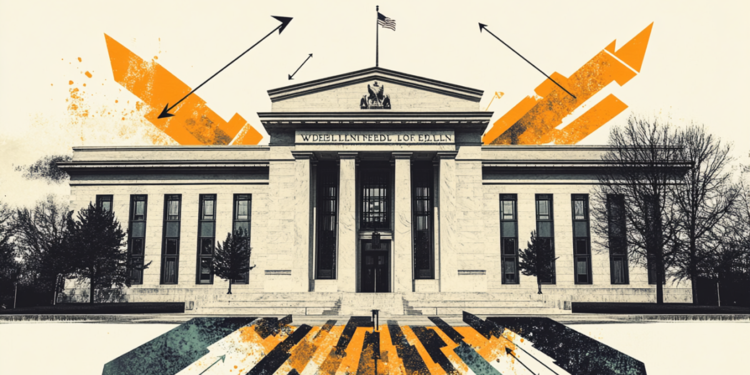Since 1969, when a group of gay bar patrons in the United States marched calling for an end to violence against the LGBTQIA+ population, June 28 has been adopted as International LGBTQIA+ Pride Day. Since then, the community has been fighting for more rights and, little by little, ensuring achievements.
In 2022, for the first time, the Brazilian Institute of Geography and Statistics (IBGE), through the National Health Survey (PNS), released official data on the non-heterosexual community in the country. According to the survey, 2.9 million people aged 18 and over declare themselves lesbian, gay or bisexual. The IBGE warns, however, that this number may be underreported.
“There is no way to have qualified effective public policies if we do not have data on the population in Brazil. So this is fundamental”, evaluated the Specialist CNN in diversity, Renan Quinalha.
“These are indicators that we need not only population, demographic density or demographic profile, but economic, educational, social, housing, cultural indicators, among others. It is only with these cuts that we can develop public policy”, added the lawyer specializing in Diversity Law Marina Ganzarolli.
Despite advances like this, the community continues to suffer violence. According to a survey by the “Observatory of Deaths and Violence against LGBTI+” – which brings together civil society organizations –, at least 316 LGBTI+ people (Lesbians, Gays, Bisexuals, Transsexuals, Intersex and others) died in Brazil from violent causes in 2021.
Although the Federal Constitution, still in its fundamental principles, establishes the objective of “promoting the good of all, without prejudice of origin, race, sex, color, age and any other forms of discrimination”, “Congress has shown itself to be insensitive” in approving laws that guarantee rights to the community, according to the evaluation of the PhD in Constitutional Law and president of the Group of Lawyers for Sexual and Gender Diversity (GADvS), Paulo Iotti.
To celebrate the date, check out some of the rights guaranteed to the LGBTQIA+ population in Brazil:
Criminalization of homophobia
As described by the Federal Supreme Court (STF), LGBTphobia is understood to be any “homophobic or transphobic conduct, real or alleged, that involves hateful aversion to someone’s sexual orientation or gender identity, as they translate expressions of racism, understood in their social dimension”.
The criminalization of violence motivated by the sexual orientation or gender identity of the victim in Brazil was approved in 2019. Since then, LGBTphobia has been classified as a crime of racism – in accordance with Law No. 7,716/89.
“We didn’t have the path of legislation, which is something that solidifies rights more, which gives greater scope to rights”, explains Quinalha.
According to the decision of the Supreme Court, the penalty provided for the crime is:
- One to three years in prison, plus a fine;
- In the case of publicizing an LGBTphobic act in the media, such as publication on a social network, the penalty will be from two to five years, in addition to a fine;
stable union
In its Article 226, the Constitution establishes the stable union “between a man and a woman as a family entity, the law having to facilitate its conversion into marriage”. None of its sections, however, mention the possibility of union between same-sex couples.
It was in a 2011 decision that the ministers of the Supreme, unanimously, recognized the stable union between same-sex couples as a family entity. From then on, homosexual couples were guaranteed the same rights provided for in the Common-law Marriage. According to this, the family entity is constituted by “lasting, public and continuous coexistence”.
“Stable union is called ‘marriage without past paper’. You have a full communion of life with that person”, explained the president of the GADvS.
Wedding
The same section of the Constitution that provides for the stable union deals with civil marriage, without mentioning whether it would be allowed between people of the same sex. After the decision of the STF on the stable union, the National Council of Justice (CNJ) defined, in 2013, that no registry office in the country could refuse the celebration of same-sex marriages.
At the time of the resolution, Councilor Guilherme Calmon explained that, until then, “some states recognized it, others did not. How to explain this disparity in treatment? The Resolution consolidates and unifies this interpretation on a national basis and without the possibility of appeals”.
In the face of failure to comply with the determination, the interested couple can go to court to have their right guaranteed, and an administrative process can even be opened “against the authority that refuses to celebrate or convert the stable homo-affective union into marriage”.
According to Iotti, although “there is no difference in law between a stable union and civil marriage, marriage gives more legal certainty”. This is because, with marriage, the registry office issues a marriage certificate that will only be invalidated if the couple decides to separate.
According to data collected by the Notary College, responsible for the country’s notary offices, at the request of the CNN, 2,188 same-sex unions were registered in Brazil in 2021. The number represents an increase of 2% compared to the previous year.
Adoption
The Child and Adolescent Statute (ECA) defines that the requirements for adoption in Brazil are:
- Be over 18 years old
- Not being a parent or sibling of the adoptee
- Be civilly married or maintain a stable union, in the case of joint adoption
- Be at least 16 years older than adopting
Based on these conditions, there is no legal impediment to adoption by couples of the same gender, since stable union and civil marriage were regulated. Prior to March 2011, the issue was handled on the basis of the jurisprudence of couples who had won the right.
To date, however, there is no express rule on adoption by same-sex couples.
Blood donation
In 2020, the STF declared unconstitutional the ordinances of the Ministry of Health and the National Health Surveillance Agency (Anvisa) that guided the restriction of blood donation for men who had sex with other men in the last 12 months.
Two months later, Anvisa revoked the determination that restricted the donation. In a note, the agency informed that “after the decision of the STF and even before any official communication, the body immediately started the articulation of actions to promote compliance with the measure”.
social name
In 2016, then-President Dilma Rousseff (PT) decreed that agencies and entities of the federal public administration should adopt the use of the social name (“designation by which the transvestite or transsexual person identifies and is socially recognized”, according to the decree.
“For example, the Unified Health System card [SUS]issues related to the Federal Revenue, all those autarchies related to the federal government will, obligatorily, have to respect the social name according to the citizen’s gender identity”, explains Ganzarolli.
Also according to the lawyer, it was only two years after Decree No. 8,727 that the STF recognized the right “of trans people to carry out the rectification of their first name and gender — in fact, the certificate says sex, but it is about gender — directly in notary, without the need for proof of hormone therapy or transsexualizing surgery”.
Importance of constitutional guarantees
Although the decisions of the STF and other competent bodies have guaranteed rights to the LGBTQIA+ community, the topics were not included in the Constitution.
THE CNN, Paulo Iotti reinforced the importance of transforming such rights into law, through Constitutional Amendments, for legal certainty – given that changing the composition of the Supreme Court, for example, could reverse the measures, explained the lawyer.
“We have important bills that are currently stalled in the National Congress because of a religious fundamentalist caucus that bars any kind of initiative for the legal protection of this community. So we either have public policies, which are those instituted by the executive powers, or we have the rights recognized by decisions of the Federal Supreme Court”, explains Quinalha.
One of the projects being discussed in Congress and which proposes to consolidate various rights for the LGBTQIA+ population, such as rights to Family Living, Parenthood and Gender Identity, is PLS nº 134/2018, which establishes the Statute of Sexual and Gender Diversity.
With authorship in the Senate, the project has been paralyzed since 2019, when it was distributed to Senator Paulo Rocha (PT-PA) for the issuance of the report.
In addition to him, the Supreme Court has been waiting for almost seven years to vote on an appeal that analyzes the right to use a public restroom according to the gender with which a transgender person identifies.
The case was opened after a transgender woman was expelled from a women’s bathroom in a shopping mall in Santa Catarina.
In 2015, ministers Luís Roberto Barroso and Edson Fachin voted in favor of condemning the establishment, determined by the Santa Catarina Court of Justice. The trial, however, was paralyzed after a request for a view by Minister Luiz Fux.
Source: CNN Brasil







